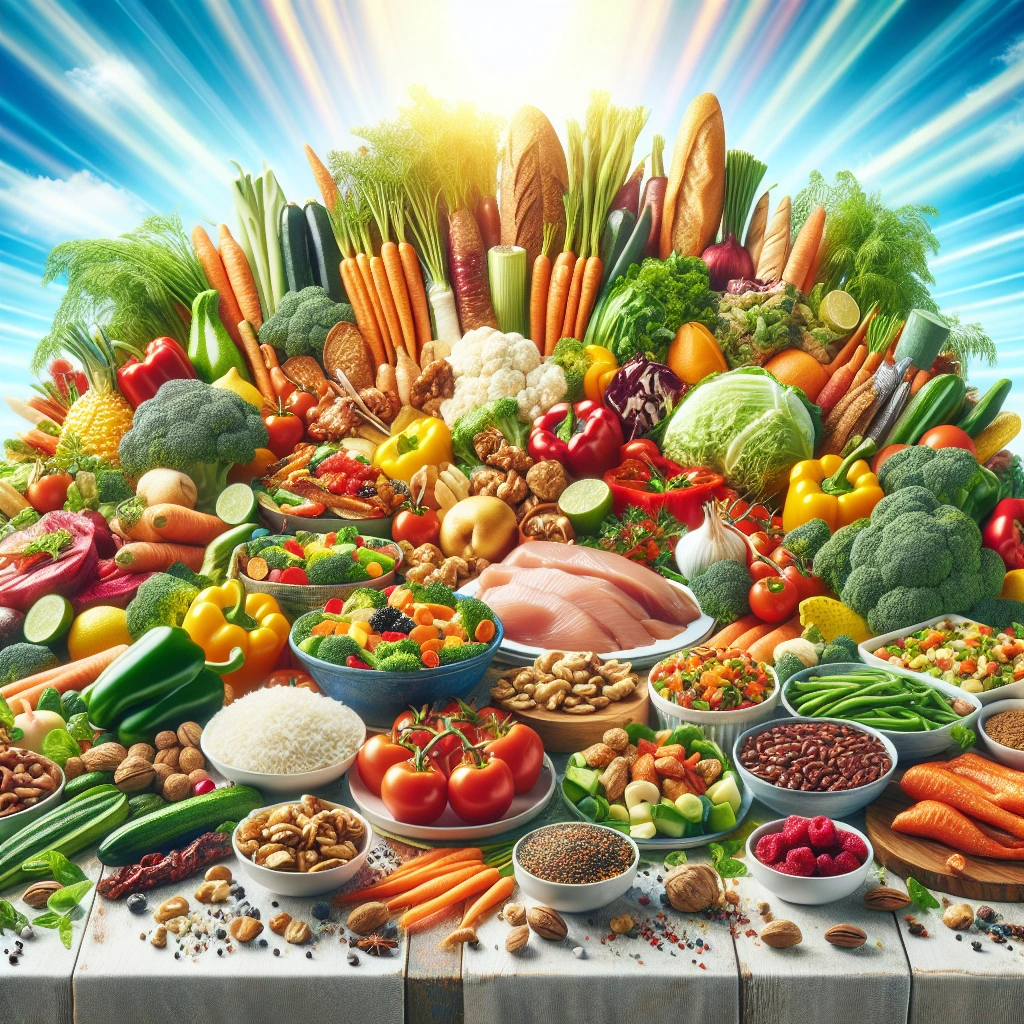Short Answer
No, a no-carb diet eliminates almost all carbs and encourages high intakes of fat and protein.


A no-carb diet eliminates almost all carbs and encourages high intakes of fat and protein. It may boost weight loss, heart health, and blood sugar control.
Yet, it’s unnecessary to cut all carbs to experience these benefits.
- Reduced Blood Sugar and Insulin Levels … Low-carb and ketogenic diets can also be particularly helpful for people with diabetes and insulin Low-carb diet: Can it help you lose weight?
Severe carb limits can cause your body to break down fat into ketones for energy. This is called ketosis.
Ketosis can cause side effects such as bad breath, headache, fatigue and weakness.
Personal Experiences
As someone who is constantly seeking out new ways to improve health and wellness, I have experimented with various diets, including the no carb diet. My personal experience with this dietary approach has given me valuable insights into its benefits and potential drawbacks.
Effectiveness of No Carb Diet for Weight Loss
After following a no carb diet for an extended period, I found that it did indeed lead to significant weight loss. By eliminating almost all carbs and focusing on high intakes of fat and protein, I was able to achieve noticeable progress in shedding excess pounds. The emphasis on protein-rich foods and healthy fats helped me feel satisfied and energized, making it easier to stick to the diet.
Challenges and Side Effects
While the no carb diet led to positive outcomes in terms of weight loss, I also experienced some challenges and side effects. The initial phase of carb withdrawal resulted in headaches and fatigue, which made it difficult to adjust to the new dietary regimen. Additionally, I found that maintaining a constant state of ketosis required strict adherence to the diet, which could be challenging at times.
Learning and Adaptation
Through my personal experience with the no carb diet, I have learned the importance of balance and moderation. I discovered that while this approach can be effective for weight loss and blood sugar control, it is vital to be mindful of potential drawbacks, such as nutrient deficiencies and side effects related to ketosis. As a result, I have honed my understanding of the importance of incorporating a variety of nutrient-dense foods into my diet to support overall health and wellness.
My personal experiences with the no carb diet have given me valuable insights into its potential benefits and drawbacks, allowing me to provide honest reviews and guidance for individuals considering this dietary approach.
Benefits of a No Carb Diet
No-Carb Diet Benefits
A no-carb diet offers a plethora of benefits. By eliminating almost all carbs and promoting high intakes of fat and protein, it has shown to boost weight loss, heart health, and blood sugar control.
Research indicates that low-carb and ketogenic diets can lead to dramatic weight loss and improve major risk factors for heart disease. These diets can also lower the risk of developing type 2 diabetes and metabolic syndrome.
How A Low-Carb Meal Plan Can Help You Reach Your Goals
Adopting a low-carb meal plan involves limiting the intake of carbs found in sugary and processed foods, pasta, and bread, while emphasizing non-starchy vegetables and protein- and fat-rich options. For many individuals, a low-carb diet aids in weight loss and enhances blood sugar control.
In the long run, taking proactive measures to maintain low-carbohydrate consumption helps in reducing the risk of heart arrhythmias, cardiac contractile function impairment, osteoporosis, kidney damage, increased cancer risk, and lipid abnormalities. However, it is crucial to note that a no-carb diet may lead to complications such as constipation, low energy, and potential short-term side effects like headaches and muscle cramps.
Food Options for a No Carb Diet
What foods can you eat on a no-carb diet?
Eating a no-carb diet involves consuming food and drinks that are extremely low in carbohydrates, focusing on primarily consuming protein and healthy fats. The key zero-carb food options include meat, fish, eggs, and cheese. These protein-rich foods form the foundation of a no-carb diet, allowing individuals to remain in a state of ketosis while effectively avoiding carbohydrates. Embracing high-quality fats and proteins forms the cornerstone of a successful no-carb diet, making it essential to opt for fatty fish, natural oils, and avocados.
Moreover, it is also possible to incorporate certain non-starchy vegetables and nuts into a no-carb diet regimen. These include vegetables like spinach, kale, and cauliflower, which possess minimal net carbs. Additionally, nuts such as almonds, pecans, and macadamia nuts represent suitable choices for those on a no-carb diet due to their beneficial fat content.
This is a comprehensive yet restrictive dietary approach that avoids or significantly limits carbohydrate intake, focusing on foods low in net carbs to stimulate the body’s fat-burning processes and foster weight loss.
Foods to Eat for Weight Loss
When it comes to weight loss, focusing on foods that are high in protein and low in carbohydrates is pivotal. Incorporating ample lean protein sources like poultry, fish, and tofu into your dietary plan is beneficial for fostering a sense of fullness, aiding in muscle repair, and driving metabolism. Furthermore, protein-rich foods contribute to the enhancement of lean muscle mass while minimizing body fat.
In addition to protein, fiber-rich non-starchy vegetables constitute an integral component of a weight loss regimen. Vegetables like broccoli, bell peppers, and zucchini are not only low in calories but also harbor abundant nutrients and fiber, enabling individuals to maintain satiety while managing their weight effectively.
Furthermore, integrating healthy fats from sources like avocado, olive oil, and fatty fish into your diet supports nutrient absorption, improves heart health, and aids in weight management. This strategic combination of protein, fiber, and healthy fats facilitates a sustainable and effective approach towards achieving weight loss goals.
To simplify these dietary options and their benefits, a table is provided below outlining suitable food choices for a no-carb diet and effective weight loss.
| Food Group | Benefits |
|---|---|
| Lean Protein (Poultry, Fish, Tofu) | Muscle Repair & Metabolism Boost |
| Non-Starchy Vegetables | Low-Calorie, High-Fiber, Nutrient-Rich |
| Healthy Fats (Avocado, Olive Oil, Fatty Fish) | Nutrient Absorption, Heart Health, Weight Management |
In essence, aiming for a balanced combination of proteins, fiber, and fats is pivotal for embarking on a no-carb diet and harnessing the potential of weight loss.
Downsides of a No Carb Diet
No-Carb Diet Downsides
A no carb diet can lead to various health complications, including heart arrhythmias and cardiac contractile function impairment due to the lack of essential nutrients found in carbohydrates. Long-term restriction of carbohydrates in the diet can result in sudden death, osteoporosis, and kidney damage. Additionally, an increased risk of cancer, impairment of physical activity, and lipid abnormalities may be linked to such dietary restrictions.
Furthermore, a low-carb diet may induce ketosis which can cause side effects such as bad breath, headache, fatigue, and weakness. The lack of clear understanding surrounding possible long-term health risks associated with a low-carb diet is a cause for concern. While a no-carb diet could lower blood pressure, it is also associated with various side effects and can be challenging to sustain. Individuals should be mindful of these potential downsides before embarking on a no carb diet.
Common Pitfalls to Avoid
When pursuing a no carb diet, individuals should be cautious of potential pitfalls. For instance, severe carbohydrate limitation can lead the body to break down fat into ketones for energy, causing ketosis-related side effects. Moreover, nutritional ketosis may elevate uric acid levels, potentially leading to an increased risk of kidney stones or gout flares. It’s critical to note that while all low-carbohydrate approaches reduce overall carbohydrate intake, there is no clear consensus on what defines a low-carb diet.
To navigate the potential pitfalls of a no carb diet, individuals should consider consulting with healthcare professionals to ensure they are meeting their nutritional needs and mitigating possible adverse health implications. Additionally, obtaining a comprehensive understanding of the potential drawbacks and the importance of a well-balanced diet can help individuals make informed decisions about their dietary choices. By addressing these potential pitfalls and being vigilant of the associated risks, individuals can optimize their approach to a no carb diet and its potential downsides.
Recommended Amazon Products for No Carb Diet
Here’s a curated list of products that can help you achieve your no carb diet goals with ease. These recommendations are based on functionality, price, and reviews.
1. Zero Carb Cookbook
This Zero Carb Cookbook contains a variety of delicious and easy recipes that are perfect for a no carb diet. With options for every meal, this cookbook provides practical and tasty solutions for those following a no carb lifestyle.
2. Food Scale
A digital food scale is an essential tool for accurately measuring portions and tracking carbohydrate intake. This versatile kitchen gadget can help you stay on track with your no carb diet by ensuring precise measurements of ingredients.
3. Meal Prep Containers
Investing in high-quality meal prep containers can make sticking to a no carb diet much more convenient. These containers are perfect for storing pre-portioned meals and snacks, making it easier to maintain dietary discipline.
4. Water Bottle Infuser
Staying hydrated is crucial on a no carb diet, and a water bottle infuser can make drinking water more enjoyable. By infusing water with natural flavors from fruits and herbs, you can satisfy cravings without compromising your dietary goals.
5. Multivitamin Supplements
When following a restrictive diet like a no carb plan, it’s important to ensure that your body receives essential nutrients. A high-quality multivitamin supplement can help fill the nutritional gaps and support overall health.
Top Recommended Product for No Carb Diet
If you’re looking for the best solution for your no carb diet, we highly recommend the Zero Carb Cookbook (https://www.amazon.com/s?k=zero+carb+cookbook). This comprehensive cookbook offers a wide range of recipes to support your dietary goals, making it an invaluable resource for maintaining a satisfying and low-carb lifestyle.


Ready to embark on your no carb diet journey? Check out the Zero Carb Cookbook today for the best results!




